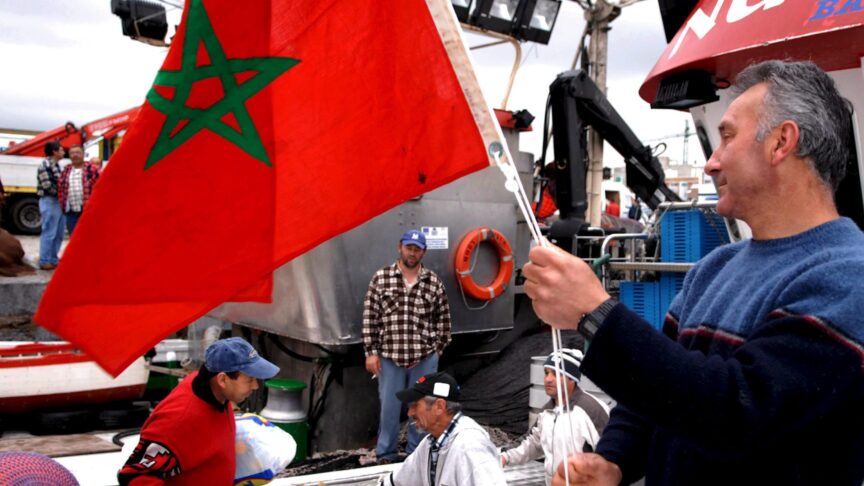Mediterranean Union – rhetoric vs. reality
Despite the grand rhetoric, neither Sarkozy nor the EU have the capacity to transform the southern Mediterranean
This article was published in El Pais on 14 July, 2008.
If one thing characterizes Nicolas Sarkozy’s presidency, it is his notable predilection for big speeches.
In one in Brussels two years ago, he argued for a “mini-Treaty” to substitute the European Constitution; another in Tangiers saw him calling for France’s return to the Mediterranean fold; at a meeting last August with his Ambassadors, he slammed the door shut on Turkey’s integration into the EU, and summoned a group of wise men to map out Europe’s borders. A subsequent Washington visit saw him announcing the end of transatlantic hostilities, whilst in the Knesset, he re-defined France’s relations with Israel. The contrast with Merkel, a woman of few but well chosen words, could not be more revealing. Next to the German Chancellor, Sarkozy comes across as a postmodern President, a fervent believer in the capacity of language to construct reality.
But as Jacques Delors once said of European foreign policy, the big drawback of speeches delivered on Sundays is that Monday morning soon comes around and they have to be dealth with. In the particular case of Sarkozy, the lyrical excesses of his speechwriting team, combined with what appears to be his inveterate quirk of not checking proposals with neighbours or partners, has led to his Presidency slamming on the brakes on more than one occasion, forcing his Foreign Minister into exhausting damage limitation exercises.
The ever skillful French diplomatic corps has had to perform rhetorical acrobatics, calling on all their powers of persuasion to smooth over the most visible cracks left by Sarkozy’s speeches and inject some rationality (multilateral and European) into proceedings on occasions when it has been lacking. The upshot is that the “mini-Treaty” faded away and the Lisbon Treaty soon appeared to take its place; the group of wise men modified their mandate and so the issue of Turkey’s integration into the EU could be quietly sidestepped. And the “Mediterranean Union” project ended up as it only ever could, as the Barcelona Process plus, which is to say, an EU Mediterranean policy which includes all of its members.
The coherence of the EU’s Neighbourhood Policy is salvaged in this way – and a splintering into spheres of influence is avoided. Thanks to the efforts of Spain, Germany, and Italy, an initiative which was hindered from the outset by the clumsy failure to secure the acquiescence of European partners or the complicity of southern neighbours, has been safely rechanneled. In this context, it can come as no surprise that many have felt strongly tempted to evaluate Sarkozy’s initiative by the numbers attending the summit held yesterday in Paris.
However, it would be more sensible to judge the meeting by the results it delivers in the medium and long term. Looked at in this way, it can be argued that although a number of new initiatives have been put into place (energy, environment, civil protection, maritime traffic) they lack the required bite to bring about the necessary transformation of political, economic and social structures of the southern shore of the Mediterranean basin. In the end, the proposal of a Mediterranean Union was left floating in the yawning gap between so much pre-summit bluster and a series of measures which could best be described as tame.
We may share a mare nostrum, but the gap in wealth, good governance and human rights which separates both sides of the Mediterranean is one of the biggest in the world (only in economic terms, the North is ten times richer than the South). The summit failed to design new instruments which might propel significant political, economic and social reform within countries, or ensure a basic level of cooperation amongst southern neighbours, something which as things stand does not exist. Nor did it lay the groundwork for a definitive solution to the Israeli-Palestinian conflict.
But in all fairness, responsibility is not exclusively European. This initiative, like past and future versions, will be successful only to the extent southern neighbours want it to be, because in reality the European Union has a very limited capacity for action when it comes to transforming the southern Mediterranean basin. Europe can do much to stimulate reforms, and in fact already does so, but it cannot substitute the will of its neighbours to modernise, either in speeches delivered on Sundays, or policies on Mondays.
The European Council on Foreign Relations does not take collective positions. ECFR publications only represent the views of their individual authors.


